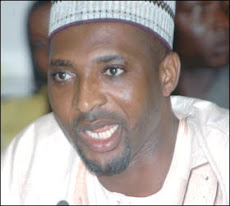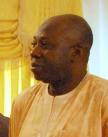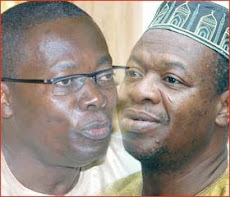By Cameron Duodu
No-one who knows how business is conducted in the world will be surprised to hear that a leading manufacturer of bridge-building equipment, Mabey and Johnson Limited of the United Kingdom, has pleaded guilty, at the Southwark Crown Court in London, to charges of bribing government officials in Ghana, Jamaica, Madagascar, Angola and Mozambique, in order to obtain contracts in those countries.
Because it pleaded guilty, and is continuing to co-operate with the British Serious Fraud Office, the company received what was a relatively meek sentence — fines totalling £6.6 million.
It is to pay “reparations” totalling £658,000 to Ghana. This is in connection with bridges it built in Ghana.
The sordid details of how the company recruited “agents” in Ghana, Jamaica, Angola, Mozambique and Madagascar; how, in Ghana, the “agent” was changed when he was thought to be not “influentia”, enough; the way and manner in which the agents received their “cut”, are all to be found on the website of the British Serious Fraud Office at
http://www.sfo.gov.uk/mabeyjohnsonltd/SFO-Annex2-Statement-01-250909.pdf
It is worth a visit to an internet café (for those who are not online) to read it and get a firsthand account of how allegedly “reputable” companies obtain contracts in developing countries.
It also indirectly exposes how the countries whose “influential” persons are bribed, lose huge sums that they could otherwise have used for useful development projects.
In Jamaica, for instance, because of the “influence” of the local “agent” who was used by Mabey and Johnson, the company was able to include, in the overall price of a contract, the premium paid to insure the contract with the British Export Credit Guarantee Department, and, at the same time, get paid by the Jamaican Government separately for the same insurance premium.
This means that Jamaica paid twice for the insurance premium. The sum involved was nearly £3 million.
Are similar frauds committed in respect of contracts entered into between Governments like that of Ghana and other foreign companies? We won’t know until institutions like the British Serious Fraud Office and its sister organisations in the USA, Holland, France, Norway and other countries, begin to use their advanced organs of investigation to protect developing countries.
For the Government-run insurance companies of these advanced countries, such as Britain’s Export Credit Guarantee Department, must obviously carry out “due diligence” investigations about these contracts before they insure them, as it would be negligent not to find out what “risks” are involved in the contracts they insure, given the fact that politics in developing countries can be unpredictable.
According to the SFO, Mabey &Johnson (abbreviated to M&J) has conducted business with government departments in Ghana over a number of decades.
From the mid 1980’s until approximately 1996, M&J’s interests in Ghana were represented by Kwame Ofori [also known as Dan Ofori Atta of the Egle Party].
Kwame Ofori controlled a Ghanaian bridge building company, and apparently had influence within the ruling circles of the then ruling party in Ghana, the NDC.
To promote its business transactions in Ghana, M&J paid commissions to its agent through the creation of a notional fund known as the “Ghana Development Fund.
M&J’s executives facilitated corruption on behalf of M&J with a variety of decision-making Ghanaian public officials with responsibilities affecting M&J’s affairs.
These funds were “capable of and were understood to be capable of, being used for corrupt purposes,” says the SFO.
When appointing and permitting its agents in Ghana to act on its behalf, M&J knew that there was a risk that unknown proportions of the agents’ commission, totalling £750,000, might be used for corrupt purposes.
On April 3, 1996, Mr. Ofori and a relative attended a meeting at Twyford with M&J’s Office Manager, at which Mr Ofori claimed that he no longer had control over the “total 15 per cent commission” and that he did not believe that a director of M&J, who was in Ghana had distributed 5 per cent to the “relevant personnel” or “local personalities”.
Mr Ofori said further that had he (Ofori) been involved in the payment of the total amount of the 15 per cent commission, “the present difficulties” being experienced by M&J would not have occurred.
What Ofori did not know was that the director he was accusing was easing him out.
He had written to MJ headquarters that he had “met Kwame Peprah”, who was, at that time, the acting Minister of Finance and the Chairman of the NDC Finance Committee.
The director “had been introduced to Mr. Peprah through Baba Kamara (aka I. B. Ibraimah), who was the NDC Treasurer, and ‘political overseer’ for the Ministry for Roads and Highways.”
The SFO adds: “The role of Baba Kamara and his value as an agent to M&J is made clear in a document authored by a[n] M&J executive” and sent to the company’s other directors.
The document said: Concerning the value of the proposed new agent, “Kamara Ltd is a small Ghanaian contractor owned by Baba Kamara.
He is the NCE (sic: he meant NDC) Treasurer and also the political overseer for the Ministry of Roads and Highways.
“He is a member of the all powerful NDC Finance Committee which includes Kwame Peprah (Minister of Finance and Minister of Mines and Energy).….[He] has considerable influence over Ato Quarshie, the Minister for Roads, the Deputy Minister and other top ranking civil servants and has been working with us since June 1994.
This has been demonstrated over the allocation of the extra £1.3 million for the Tano bridge, and the £4.5 million allocation for the Priority Bridge Programme.”
The SFO continues: “Additionally, Mr. Kamara’s wife was secretary to the then President of Ghana - the former Flight Lieutenant ‘Jerry’ Rawlings, who had originally achieved power by means of a military coup in 1981.
Unsurprisingly, a person in the position of influence of Mr. Kamara was an attractive prospect to M&J as agent for their business in Ghana, and the SFO contend, that M&J knew, and intended that commission paid to Mr. Kamara, would be deployed as and when required, to corruptly promote M&J’s commercial interests.
The SFO believe that because he had demonstrated his effectiveness to attract business corruptly, he was appointed by M&J.”
It is accepted by M&J [the SFO says further] that in creating and making payments from this fund, corrupt payments would be made to public officials in order to affect the decision making process in favour of M&J.
“Some of those purposes were self-evidently unrelated to M&J’s legitimate business, such that the payments can best - and, indeed, only - be described as bribes.
Not only were the bribes overt, so too was the means of collection on the part of the Ghanaian ministers and officials.
Some, indeed, visited the UK in order to collect their payments in sterling….
“Thus the then Minister at the MRH [Ministry of Roads and Highways] Dr. Ato Quarshie, received a cheque, when he visited London in July 1995, in the sum of £55,000 for “contract consultancy”.
An M&J director faxed instructions to the bank to enable Dr Quarshie to cash the cheque….In 1996 Saddique Boniface was the ECGD desk officer in the Ministry of Finance.
On February 29, 1996 Saddique Boniface received a transfer of £10,000 from M&J to an account at Barclays Bank Plc in Watford. On October 29, 1996 the same account received a transfer of £13,970 from M&J.
“On or about October 29, 1996, Amadu Seidu, the Deputy Minister at the MRH, received £5000 in his Woolwich account held in St.
Peter Port, Guernsey and Dr. George Yankey the Director of Legal and International Affairs at the Ministry of Finance, received £10,000 in his Midland Bank account in Hill Street, London W1; and Edward Lord Attivor, the ex- minister at the Ministry of Roads and Highways, also received £10,000 in his London bank account. …Amadu Seidu received a further £5,000 on March 7, 1997, the same date on which Saddique Boniface received a further £2,500.”
Mr. Boniface’s son, who was a student at Exeter University received a cheque from M&J in the sum of £500. Although this is a relatively small sum it is indicative of the nature of the corruption M&J was then practising…. From December 1994 to 1 August 18, 1999, M&J used the GDF (Ghana Development Fund) and associated accounts to pay bribes directly to named Ghanaian public officials totalling £470,792.60.”
The SFO concludes: “None of the payments set out above, obviously, could be said to have anything remotely resembling a legitimate commercial purpose.
Thus M&J was able to engage in wholly corrupt business practices without any effective level of external scrutiny being applied.”
Unusually, the SFO makes the point that those who suffered most from these payments were the people of Ghana.













No comments:
Post a Comment